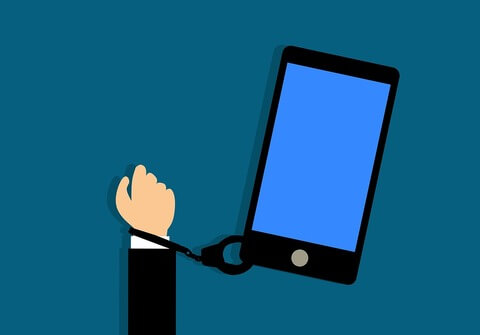Can people be changed?
Arguments for abandoning Google: privacy, self-sovereignty, fair pricing, avoiding censorship.

The Challenge of Convincing People to Abandon Surveillance Technology
Convincing people to abandon surveillance technology is no easy feat. Recently, a reader on Nostr questioned the necessity of switching from Google products. We’ll address his concerns and argue for why he should consider alternatives.
Does it Matter?
He said:
“I keep thinking, to what extent does it matter? In other words, what am I protecting myself from, if I, let’s say, use a degoogled phone? That Google will know my interests to show me targeted ads? I don’t care, I actually prefer to see relevant ads if I have to see ads.”
Ads
First of all, you said “if I have to see ads”, which you don’t. If you use uBlock Origin browser extension or Brave Browser for example you won’t see them. Another option is a DNS block on Google. Even with a regular stock Android, any of these options work.
Unfair Pricing
Second, you assume that the advertiser will charge you a fair price regardless. Our previous article on browser fingerprints demonstrated from numerous academic and empirical sources that many retailers will abuse their knowledge about you to charge a higher price. For example, Target charged a higher price on the mobile app when shoppers were physically closer to a store, because alternatives were much less convenient. Other examples include airlines knowing you will buy tickets because you checked the flight multiple times, and then jacking it up for you. You can find this article here: Browser Fingerprints Lead to Price Discrimination.
Social Credit Score?
He continues:
“That Google will delete my account one day because they dislike something I said online? That would be bad, but by far less likely and, I can protect myself from this, I think, simply by having backups of my data and an email address in my own domain, using proton mail or alike, right?”
It’s about Power
Yes, that’s exactly what we’re saying. Google can and will ban you for speech they dislike and by heavily using their services, you’ve become dependent on their will. This isn’t just about privacy, but it’s about power and self-sovereignty.
Mission Creep
Now you might say, “oh well I’m not speaking out, and I’m not a controversial public influencer”. But what today may be normal speech or actions, may change in the future. For example, 10 years ago, would you have thought you might be forced to take a vaccine to enter a restaurant? Who knows what drugs future Google will require for accounts you’ve become dependent on.
Canceled
Another example is politically correct people getting offended by past controversial humor, and comedians getting canceled for things they said 20 years ago. If all your speech is, as Edward Snowden refers to it, “on permanent record” then your mistakes can never be forgotten. Even though today, those mistakes are the norm.
Steal Bitcoin?
He continues:
“What else can Google do to me? Denounce me to a dystopian government for being interested in Bitcoin, so that they can try to confiscate it? Sure but, first of all, hopefully extremely unlikely, and secondly, it’s “too late” already. I’m signed up in Gmail to many Bitcoin newsletters. They already know.”
Then no purpose
If your Bitcoin can be taken, what is even the purpose of it? That sounds like a bank account, and Google can see all private keys kept on Android. So you never really own self-custody Bitcoin with Google, you only have temporary access. Your own money is being loaned to you.
Unrealized gains
It’s not unrealistic to think the government will confiscate your Bitcoin or try to do ridiculous tax hikes such as unrealized capital gains. Not only are people such as Elizabeth Warren actively pushing for this in Congress, but past precedent has shown the steps governments will take when their currency experiences heavy devaluation.
FDR with Gold
For example, in 1933 FDR confiscated Americans’ gold. Another example is India literally going door-to-door to confiscate cash, to force people into digital surveillance. Yet another recent example is in Nigeria, the forced CBDC program, which tried to end physical cash.
Already Know
The idea that they “already know” and therefore you should never change is ridiculous. The knowledge about your past activity becomes less and less relevant, the sooner you stop surrendering all future data to a malicious surveillance firm such as Google. Bitcoin can be sent to an empty wallet on a Linux computer or de-Googled phone and now you “don’t have it anymore” in the eyes of the empire.
Boil Frogs
There’s the old expression of the boiling frogs: if you turn up the heat suddenly, they hop out. But if you slowly dial it up, they boil to death, not realizing there’s a way out. Then again, you may not know about this example if Google AI is deciding everything you see.
If you really want to learn and take your privacy to the next level, Learn about HydraVeil, Access our VPN, and subscribe to our new content via: Arweave Video RSS, Podcast RSS, Session list, Nostr, Bastyon, Article RSS, or join the Signal Group
Related Posts

New Podcast
Simplified Privacy's Brand New Original Podcast
[SP]
Nov 3, 2024

Why Privacy? Depends on Who’s Asking…
People assume the answer to “why privacy” is the same for everyone.
[SP]
Feb 17, 2024

The Tyranny of KYC
Financial surveillance is far worse than most think. You’re in for a shock if you read this.
[SP]
Feb 15, 2024

They wish to digitally cage us
I’m disputing the legitimacy of our society’s infrastructure.
[SP]
Jan 16, 2024